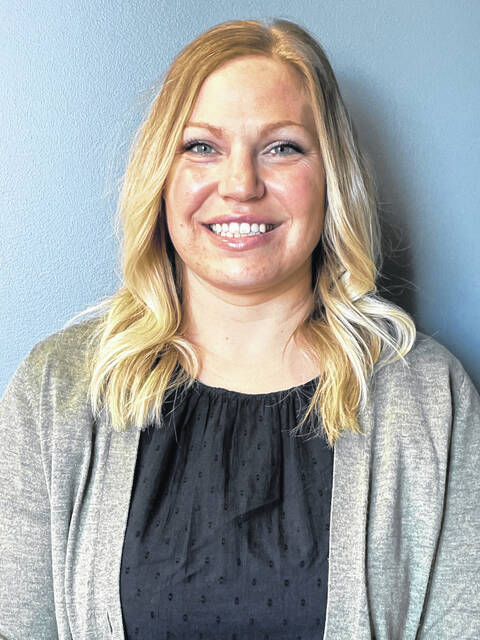
What is Medication-Assisted Treatment (MAT)?
Medications combined with therapies to treat opioid use disorder
Medication-assisted treatment, also known as MAT, is formally known as the use of medications in combination with counseling and behavioral therapies for the treatment of opioid use disorder (OUD). For many, MAT means a chance at sustaining long-term recovery and a chance at a new beginning.
For many years, there was a large gap in available OUD treatments within Fayette County. Beginning in 2017, Fayette County Public Health began administering MAT in conjunction with local providers and counseling centers in hopes of providing treatment to the residents of Fayette County. What began as a program directed towards incarcerated individuals and their release quickly evolved into much more. At the peak of the program, more than 392 Vivitrol injections were given in a years’ time.
Safe and effective medications combined with psychosocial support
There are currently three drugs approved by the FDA for the treatment of opioid dependence; buprenorphine, methadone, and naltrexone. All of the treatments have been shown to be safe and effective in combination with counseling and psychosocial support.
Each of these medications works in a slightly different manner. For instance, buprenorphine is an opioid partial agonist. It is effective in reducing the body’s physical dependency on opiates such as withdrawal symptoms and cravings. It is available in pill or injection and the frequency depends on specific patient instructions.
Naltrexone is an opioid antagonist meaning it blocks opioid receptors without activating them and helps to reduce cravings. It is available in a pill, taken daily, or an injection that is given once monthly.
Methadone is a full opioid agonist that helps to reduce cravings and withdrawal symptoms as well as blocking the effects of an opiate and is taken daily.
All of these medications work differently and they all will not work for everyone. Each individual may need to try multiple forms of MAT before finding one that works for them. The length of time that an individual needs to be on MAT varies from person to person.
The road to recovery – finding strength in stories of success
Reducing the stigma surrounding MAT and the length of time that someone is on it is vital to a person’s success and their goal of accomplishing long-term recovery. Addiction and OUD is often a long hard road but there are stories of triumph. Seek out those stories in the days when it seems so far away.
MAT offers individuals the chance for a new beginning and the start of long-term recovery. Although MAT can help to curb an individual’s cravings or their need for an opiate, it is imperative that they also participate in counseling and have a strong support system. Many people attempt recovery more than once and that is okay. We know that everyone deserves a chance at life and strongly believe that MAT is a wonderful stepping stone to get them on the road to recovery. I encourage you to reach out to someone struggling with addiction and offer resources, a lending hand, and most importantly love and understanding.
Resources close to home
Fayette County is fortunate enough to have many individuals and companies that offer MAT, treatment options, and counseling resources. Some local resources are listed below. Please note that this list is not inclusive and more resources may be found by visiting https://mha.ohio.gov/ or by downloading the Fayette County Sheriff Ohio application on your apple or android phone and clicking on the Faith in Recovery tab.
Pathways to Recovery – (740) 463-1009
Fayette Recovery Center – (740) 335-8228
Scioto Paint Valley – (740) 335-6935
Within Reach Counseling – (740) 604-9373
Phoenix Integrated Health – (833) 749-4325
Ashley Roberts, RN, is a public health nurse at Fayette County Public Health. Upon referral from a provider, Fayette County Public Health provides MAT for individuals who are receiving counseling. FCPH works alongside community partners on the FAITH (Faith in Recovery) Coalition. The coalition is a collaborative of government, nonprofit, and faith-based organizations that meets monthly to combat substance abuse in Fayette County. The coalition identifies strategies to decrease substance abuse, promote healthier lifestyles, and improve the lives of our neighbors battling substance abuse. Together, we will ensure that our neighbors can and will recover!
References:
Indian Health Service (n.d). Pharmcological Health Treatment. Retrieved from: https://www.ihs.gov/opioids/recovery/pharmatreatment/
Substance Abuse and Mental Health Services Administration, (1/24/2022). Buprenorphine. Retrieved from: https://www.samhsa.gov/medication-assisted-treatment/medications-counseling-related-conditions/buprenorphine
U.S. Food and Drug Administration (2/14/2019). Information about Medication-Assisted Treatment (MAT). Retrieved from: https://www.fda.gov/drugs/information-drug-class/information-about-medication-assisted-treatment-mat


